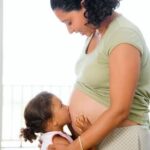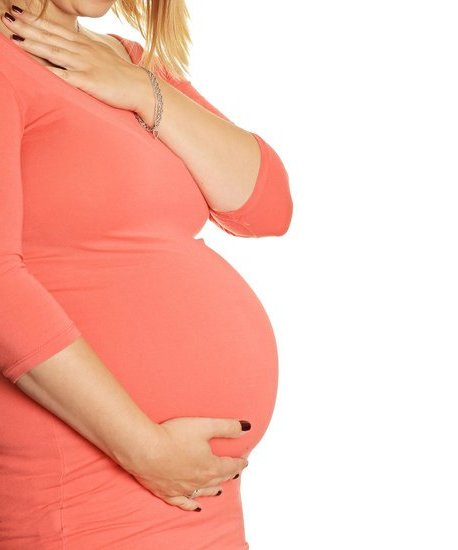Introduction
Pregnancy is a beautiful experience for many women. Although every pregnancy is different and can bring about different reactions from the mother, there are some symptoms that are common and give an indication of when a woman may be pregnant. Understanding these signs can help you in the early stages of your pregnancy and allow you to prepare for what is ahead.
The earliest indications of pregnancy are often related to hormone changes that occur in the body as a result of conception. Common early symptoms may include missing periods or a change in menstrual cycle, increased sensitivity to smell, nausea and fatigue, tenderness and soreness around the breasts, frequent urination, heartburn or indigestion, heightened sense of taste, feeling faint or lightheaded, headaches and dizziness.
Other physical symptoms that may arise later in pregnancy include back pain which is usually caused by pressure on the joints. Your doctor can refer you to a specialist if further treatment is needed. Additionally, swelling or puffiness especially around your hands and feet should also be monitored as it could be an indication of pre-eclampsia which is a condition characterized by high blood pressure during pregnancy. Seek immediate medical attention if any abnormal symptoms occur as soon as possible.
It’s important to remember that although many women experience similar signs of pregnancy at similar times during their pregnancies; each person reacts differently and has their own unique experiences with the process too. While it’s helpful to recognize common indications of being pregnant – talking with your healthcare provider should always be your first line for advice when considering if you’re pregnant or not.
Early Signs and Symptoms
Early pregnancy symptoms can start as early as a few days after conception, but typically appear and become more noticeable around a week after implantation. Nausea or morning sickness is one of the most common indicators of early pregnancy, although it doesn’t affect every woman. During week 6, the body produces more HCG than ever before. Pregnant women may also feel fatigued during their first trimester and experience frequent headaches due to hormonal changes in the body. Other commonly reported early symptoms include abdominal bloating, breast tenderness due to changes in hormone levels, increased urination as the uterus begins to press on the bladder, and food cravings or aversions. Mood swings are also quite common during pregnancy along with heightened sensitivity to smells which can cause nausea.
Exact Timing
The exact timing of when you will experience symptoms of pregnancy will vary from person to person, so much depends on your individual body and how it responds to the changes that come with a new pregnancy. Generally speaking, though, many early signs of pregnancy can start around 6-8 weeks after conception. Some women may feel tenderness and fullness in their breasts before this time as one of their earliest signs that they are expecting. At 6-8 weeks is when some women will start experiencing morning sickness as well as fatigue.
Additionally, some people may experience headaches and even light bleeding at this time or shortly afterwards; these are both signs of an impending pregnancy and should be reported to your doctor for further evaluation if they appear suddenly and persistently. As the weeks go on, other common symptoms such as frequent urination, food aversions or cravings, mood swings, and backaches may also become present. It’s important to note that each woman can experience different types and intensities of these symptoms depending on her individual body chemistry. All in all, by 10-12 weeks most women have felt at least some of the usual indicators that a new baby is on board!
Differences Between Women
Symptoms of pregnancy differ between each woman as well as throughout the duration of gestation. It is difficult to determine when one begins to experience different symptoms of pregnancy due to the complexity of hormones, physical and mental changes that take place during this time. Generally, the earliest symptoms may begin anywhere from three weeks to two months after conception. The most common symptom experienced in early pregnancy is fatigue, followed by nausea and vomiting, sore breasts and tender nipples. Later in pregnancy other common symptoms include constipation, leg cramps, swelling in feet and ankles, heartburn and increased vaginal discharge. However, the exact timing and intensity of different symtoms may vary drastically between women. Additionally, some women claim not to feel any symptoms at all during their first trimester despite being pregnant. This is perfectly normal due to the individual nature of such experience. Ultimately, it is important to be mindful that each woman will have a different knowledge when it comes to relevant pregnancy symptoms and associated changes that can occur throughout gestation.
Physical & Emotional Changes
Physical Changes: Some of the more common physical symptoms of pregnancy include nausea and vomiting (often referred to as “morning sickness”), breast tenderness, fatigue, frequent urination, food aversions or cravings, and heartburn. Depending on the individual, these types of physical changes may be noticed soon after conception begins (approximately six to eight weeks after the last period) though they may become more intense in the later stages.
Emotional Changes: It is very common for pregnant women to experience many emotional shifts during their pregnancies. These can range from extreme happiness and anticipation at the thought of becoming a mother to fear or anxiety regarding the uncertainty that lies ahead. Pregnant women may also feel insecurity about their appearance or future parenting skills. Mood swings are not uncommon due to intense hormonal changes brought on by pregnancy – hormones also play a role in temporarily impairing short-term memory and concentration – particularly during the first trimester.
Early Tests
When a woman suspects pregnancy, an important first step taken is to use a home pregnancy test. This test will measure the presence of the Human Chorionic Gonadotropin (HCG) hormone in the urine which is an indicator of early pregnancy. While some women may start experiencing early symptoms such as nausea, fatigue, and breast tenderness around week 3-4 of their cycle, it can take up to week 6 to get a positive result on a home pregnancy test.
It is often recommended that women who suspect they are pregnant take two different home tests at least three days apart to ensure accuracy. Blood tests are also available from clinics and doctors offices which provide further assurance as they can detect very low levels of HCG and show positive results earlier than a home test.
Though having characteristics symptoms is commonly associated with being pregnant, physical signs alone do not confirm it and should be accompanied by diagnostic tests for more certainty.
Consulting a Doctor
It is important to consult a physician as soon as possible when experiencing pregnancy symptoms. Depending on the individual, symptoms may start to show between 2-6 weeks after conception and can include nausea, vomiting, fatigue, breast tenderness and changes in appetite. Other common pregnancy signs that usually show up around a week after missed period are frequent or increased urination, abdominal cramping or bloating and mood swings. Receiving medical advice early can help diagnose any problems that may arise during the course of the pregnancy and provide tips on how to handle them. Health care providers will also advise consuming a balanced diet rich in vitamins and minerals, staying away from alcohol and cigarettes, as these can be detrimental to both mother’s and baby’s health. Exercise is also recommended for pregnant women, but high intensity activities should be avoided until proved safe by medical personnel. Finally it is important for expectant mothers to seek regular prenatal care throughout their pregnancies for further monitoring of their health and well-being.
Summary
The understanding of pregnancy symptoms is important in order to monitor one’s health and wellness throughout the entire pregnancy process. Generally, a woman can expect to experience signs such as fatigue, cravings for food, nausea/vomiting, irregular menstrual cycles, sore breasts, and frequent urination in the earliest stages of pregnancy. Later on in pregnancy, other well-known physical symptoms should be expected such as rapid weight gain, the presence of stretch marks and varicose veins on the skin’s surface, shortness of breath, backaches caused by repositioning of the posture due to an expanding uterus, an increase in vaginal discharge which may or may not have an unpleasant odor to it. Knowing what these signs indicate can help ensure that you are taking proper care of yourself while pregnant. If symptom severity or frequency increases considerably or anytime there’s a sudden change in your condition – consult your doctor immediately! The importance of self-awareness during the nine months journey cannot be stressed enough!

Welcome to my fertility blog. This is a space where I will be sharing my experiences as I navigate through the world of fertility treatments, as well as provide information and resources about fertility and pregnancy.





